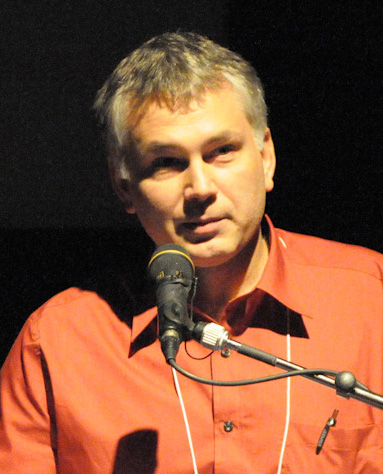A University of British Columbia research team using cell phones to improve HIV patient care in Kenya has received $2 million in partnership with a Kenyan organization to expand a mobile health (mHealth) program into rural, remote areas.
Half of the money is coming from Grand Challenges Canada, a federal funding program seeking to try new ideas for improving health in the developing world. The other half is being provided by the African Medical Research Foundation (AMREF).
Cell phones are everywhere in Africa and usage costs are very low,” says Richard Lester, a Clinical Assistant Professor in the Division of Infectious Diseases of the University of British Columbia, and founder and director of the project. “This makes them a great tool for patient care in a resource limited setting like rural Kenya.”
Dr. Lester conducted a clinical trial in collaboration with the University of Manitoba and University of Nairobi in 2009, and found that a simple “how are you?” text, sent weekly to patients on anti-viral therapy for HIV, allowed nurses to easily manage and follow up with a large number of patients. Patients in turn reported better support and were 12 per cent more likely to stay on their drug therapy, which in turn led to a 9 per cent increase in patients with full viral suppression.
“This was one of the first trials that demonstrated improved HIV treatment behaviors,” Dr. Lester says. “Given the number of people living with HIV/AIDS in Africa, almost 30 million, these small but significant changes can be amplified to massive impact if brought to scale.”
Soon after the results werepublished, Dr. Lester helped establish WelTel, a non-profit organization that is developing and applying his mobile mHealthstrategy for widespread clinical use.
“Moving research to clinical practice is difficult since the challenges of the real-world are often not addressed in a clinical trial,” says Peter Singer, CEO of Grand Challenges Canada. “With WelTel, Dr. Lester has developed a technology platform and partnerships in Kenya that have the potential to allow this mHealth strategy to be cost effective, self-sufficient, and most importantly, save lives.”
In addition to HIV patients on antiviral therapy, the WelTel platform will also be applied to people being treated for tuberculosis, and women and children with a variety of health problems that require medication adherence. Cost savings to health care will also be significant since the proper and prescribed use of medication prevents serious and more costly health issues.
“The progress of the mHealth program is impressive and we are eager to see communities gain from the knowledge, skills and means to maintain their own health,” says Lennie Kyomuhangi, the Director of AMREF Kenya. “This project has the potential to transform the lives of the people in Kenya’s northern and arid lands.”
Dr. Lester, now based at the Immunity and Infection Research Centre at the Vancouver Coastal Health Research Institute, in addition to being the lead global health researcher in UBC’s Division of Infectious Diseases, wants to use the technology platform to improve patient care in both Africa and North America.
“This is an effective tool for patient care that can be applied to all sorts of conditions that require long-term maintenance,” he said. “And if it works in Africa, where there are many barriers to health care, then it should work here in Canada as well.”
